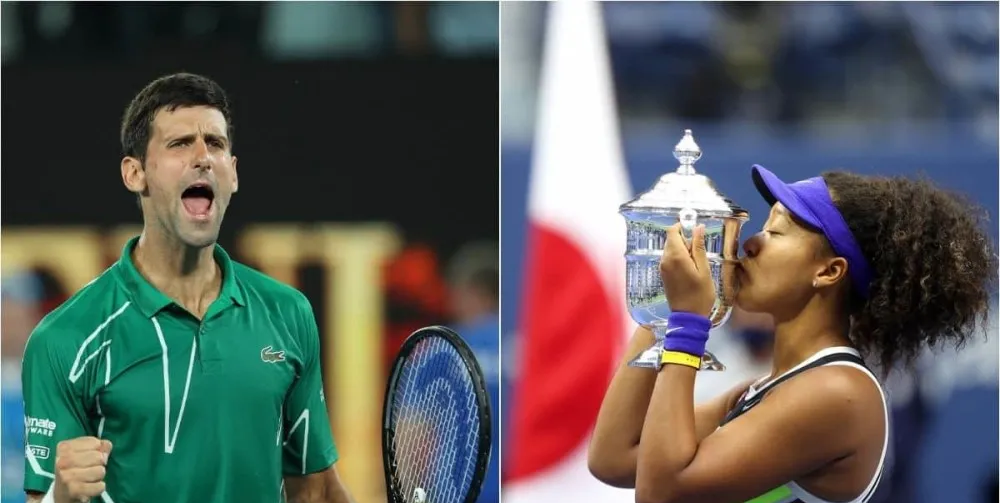I believe that tennis fans have seen many interviews with young players, when these young people look forward to the future with their eyes shining brightly and expressing the highest ideals of their tennis careers, they usually say, "I dream of becoming the number one in the world and winning the Grand Slam laurels!" "It's hardly heard that there will be players who will "win an Olympic gold medal" as the highest professional ideal.
This actually shows the awkward relationship between tennis and the Olympic Games from one side, tennis lacks great recognition of the value of the Olympic Games, and the Olympics' attitude towards tennis is not fully accepted.

At every Olympic Games, high-ranking players have a large number of withdrawals. This Tokyo Olympics is no exception, and even due to the epidemic and the holding of empty venues, the tide of withdrawals is more turbulent than in previous editions. Among the players who have withdrawn from the competition, some of them are indeed injured or infected with the new crown virus, but there are also many players who have chosen to give up when they are eligible to participate, and they have not suffered a lot of criticism in public opinion. The attitude of tennis stars to the Olympic Games seems to have long been taken for granted.
This comes first from the special Olympic history of tennis. Although tennis has become a member of the Olympic family in the early days of the modern Olympic Games, after the 8th Olympic Games, tennis has bid farewell to the Olympic family because the Olympic Committee and the International Tennis Federation cannot unify the identity of amateur athletes. It was not until the 1988 Seoul Olympics that tennis returned as an official sport, and at the 1984 Los Angeles Olympics, it was only a performance event.
Charlotte Cooper became the first Olympic women's tennis champion in 1900.
But the road back is not smooth. The Olympics, of course, had no prize money, and there were no points at first, and then points were established later, but the points were eliminated before the Rio Olympics.
There is no bonus, but the points are the lifeblood of professional players, and the cancellation of points naturally further reduces the enthusiasm of players. In fact, it can also be figured out from this that the attitude of ATP and WTA to the Olympic Games, as well as the complex relationship and game between these two major tennis organizations and the ITF International Tennis Federation and the IOC Olympic Committee. Coupled with the long and tight schedule of professional tennis, the Olympic schedule often conflicts with the tour schedule, and players who want to participate in the Olympic Games must face a dilemma.
Therefore, participating in the Olympic Games has become a more personal choice for tennis players in many countries. For athletes who are not from countries that are not big Olympic gold medalists, or who can't reach the championship at a Grand Slam, the Olympics are certainly a once-in-a-lifetime opportunity. De Montieeva's lifetime missed a Grand Slam laurel, but she at least has the Beijing Olympic women's singles gold medal, the highlight of her career. Puig from Puerto Rico won the gold medal on a dark horse at the last Olympic Games, and she is definitely a national hero for a lifetime.
Another example is Chile's Masu, although the achievements of grand slams and professional competitions are not as good as those of his compatriot González, but the Olympic gold medal gives him a special status in his home country. Under his influence, Tim, a disciple who had always been uninterested in the Olympic Games, also became interested in participating in the Olympic Games. Unfortunately, in this Olympic Games, Tim eventually withdrew due to health and status. Three years later, the tennis tournament at the Paris Olympics will be held in Roland Garros, which may be his best and last chance.
Speaking of the confusing relationship between tennis and the Olympics, one can't help but think of a quote from American player Querry at last year's Australian Open: "Many of my friends around me don't even know if tennis is an Olympic sport." I'd rather win any ATP 1000 Masters title than an Olympic gold medal. “
Uh, just want to say, the Olympic gold medal is so easy to get? I haven't seen you take the Masters yet. And, it's time to take a look at your circle of friends...
Wen | Zhang Bendou
Intern Editor | Pai Daxin